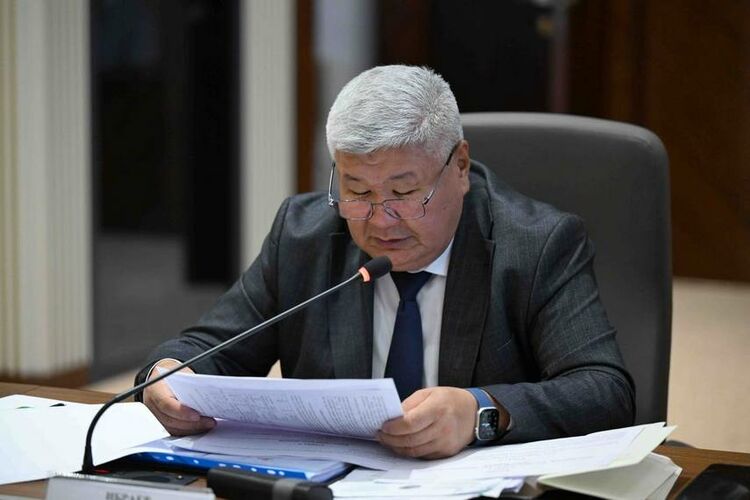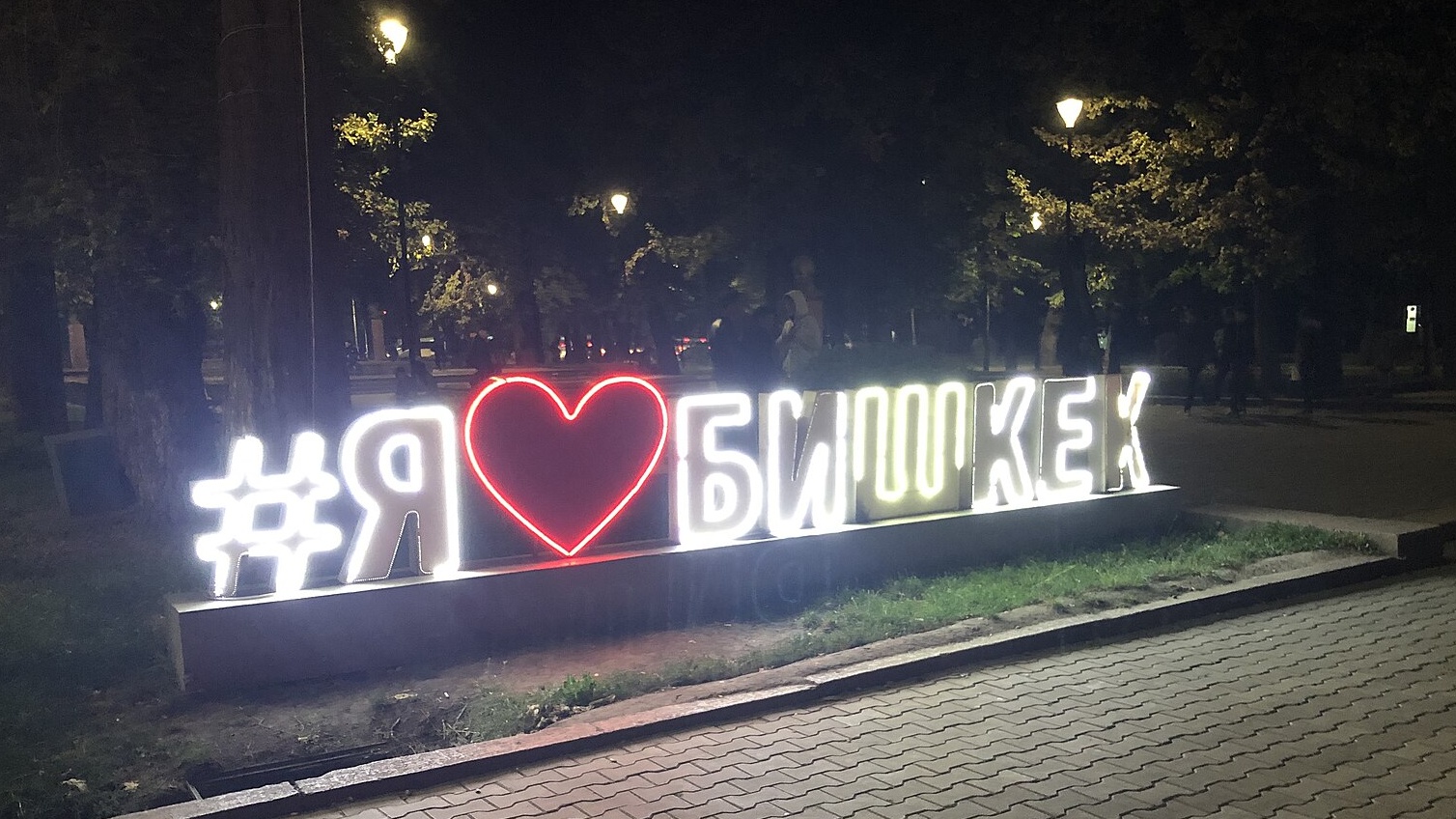PANNIER: Dire power deficit pits Kyrgyz president against city mayors and kettle against washing machine

In Kyrgyzstan, the scramble is on to try to stretch the country’s electricity supplies through the winter. Water levels are troublingly low at hydroelectric power plants (HPPs) particularly when it comes to the Toktogul HPP reservoir – it provides water to a facility that supplies some 40% of Kyrgyzstan’s domestically generated power.
Officials have appealed to Kyrgyzstan’s 7.4mn citizens to conserve electricity, while the government imposes various measures to prevent the lights going out over extended periods.
Forewarned is forearmed?
Kyrgyzstan’s energy sector is entering the third winter under a declared state of emergency. Energy Minister Taalaybek Ibrayev brought in the measure in July 2023, saying the country would be some 3bn kWh short of meeting domestic power needs that year and by 2026 would face a deficit of 6bn kWh.

It was three years ago that Energy Minister Taalaybek Ibrayev declared Kyrgyzstan's energy sector would be placed under a state of emergency for several years to provide officials with more powers to solve its woes (Credit: Cabinet of Ministers).
Kyrgyzstan is nine-tenths mountainous. Until very recently, it seemed its abundant rivers could fuel expanding hydropower all the way to a state of national energy independence. But Central Asia is one of the world’s hardest-hit regions in terms of climate change. And in the last half-decade, there has been reduced precipitation and warmer temperatures. Hydropower is no longer as reliable an option as it was once considered to be.
Ibrayev said on November 12 that the Toktogul water level was 2bn cubic metres (bcm) lower than it was 12 months previously. Reports on his comments did not mention him giving any specific figure on where the water level stood by last week, but in November 2024 the level was around 12.8 bcm.
The reservoir can hold up to 19.5 bcm, but the last time it was brimming was September 2010.
Some 6-7 bcm of water is usually released from Toktogul in the autumn-winter to generate electricity, but with the current water level that will be impossible as the reservoir would fall to the “dead zone” of 5.5 bcm. At anything below that threshold, the HPP generator ceases to operate.
Lights off
Faced with an imminent shortage of power, the authorities are implementing new regulations to save electricity.
The Cabinet of Ministers has introduced a rule stating that state agencies must turn their electricity off from 18:00 to 06:00, with the exception of defence, security, law enforcement and hospital facilities. A change means schools are now being permitted to keep electricity on until 19:00.
Corridors and non-work spaces, such as storage areas, at state facilities must have motion sensors installed that turn off lights automatically.

"I love Bishkek", reads a sign unlikely to survive the 10pm stricture (Credit: Davide Mauro, cc-by-sa 4.0).
On November 13, the head of the State Committee for National Security (GKNB) Kamchybek Tashiyev complained that the law “on quiet” after 22:00 was not being obeyed. “From today, November 13, no celebrations should be held anywhere in the republic after 10:00 pm,” Tashiyev said.
To make his order clear, Tashiyev added: “Some will say that cleaning and washing dishes are necessary, and will try to extend the time by two or three hours. But that won't work.”
“Once 10:00 pm arrives,” Tashiyev added, “the lights in the restaurants will be turned off.”
The mayors of Kyrgyzstan’s two biggest cities, Bishkek and Osh, then instructed restaraunts, cafes, nightclubs and other establishments to close at 22:00.
Police have raided several venues that were open after that hour.
President Sadyr Japarov called for the mayors in the two cities to show some restraint and common sense. There was no need for businesses serving food in the late evening, such as fastfood restaurants, to shut down at 22:00, he said.
Authorities also moved to curb one of the biggest sources of electricity use. On June 12, Ibrayev ordered all bitcoin mining farms in the country to shut down. Tashiyev, in remarks the following day, said the mining farms would remain closed until April 2026.
Bitcoin mining farms have come under scrutiny from governments in many countries due to their thirst for electricity. Such operations are typically abundant in countries with low electricity fees and Kyrgyzstan’s electricity price is among the lowest in Central Asia.
Authorities in Kyrgyzstan have also called on citizens to reduce electricity use at home. Ibrayev said that during peak electricity consumption hours, power stations would decrease output by as much as 40%, “otherwise, there is a risk of reaching a point where generators stop producing electricity.”
One Kyrgyz media outet wrote that under the government’s plans, “residents have to choose: turn on the washing machine or the electric kettle.”
Light at end of tunnel
Ibrayev and Tashiyev emphasised that if everyone stuck to the measures ordered, there should not be any rolling blackouts or sustained power outages this winter, unlike in previous years.
When Aibrayev announced the emergency situation in the energy sector two years ago, he said it would likely last through 2026. Officials continue to say that.
President Japarov has said another 41 small- and medium-sized HPPs will be launched in 2026-2027, with a second generator, adding an additional 120 megawatts, to start up at Kambar-Ata-2 HPP in 2028.
Japarov has also said that by 2027, Kyrgyzstan’s energy sector should start turning a profit, meaning not only will the country be able to provide for its own energy needs, it will also start power exports in earnest. Ibrayev and Tashiyev also say Kyrgyzstan will turn a corner in electricity production by 2027, with power shortages to be a thing of the past.
For this coming winter though, Kyrgyzstan’s people will have to struggle through as they have the last few winters. The Bishkek mayor’s office said on November 12 that there are ample supplies of coal available at sales areas around the city. Other areas of the country are similarly stocked with coal for this winter.
This will help citizens keep warm, but it will make breathing more difficult. Bishkek has this month registered an air pollution spike. For several years, the city has frequently been ranked by IQAir as having some of the most polluted city air in the world.
Kyrgyzstan’s energy woes have not gone unnoticed by people outside the country. Former president Almazbek Atambayev, who fled Kyrgyzstan and has since been convicted in absentia on several serious charges, posted a scathing assessment of Japarov’s failure to provide the people with sufficient electricity.
Officials hit back at his remarks, noting industry, construction and population expansions, meaning that even if there was sufficient electricity 10 or 15 years ago, the need for more power continued to increase.
Other Central Asian countries are warning their citizens that this winter promises to be a challenge in meeting energy needs. Kyrgyzstan’s population has heard such messaging for several years now. The clock is ticking on Japarov’s government making good on promises to put an end to the country’s power shortages.
Features

COMMENT: Head-to-head – China vs Japan. Who wins?
With the latest China – Japan spat having been blown up exponentially by Beijing in recent days, many in East Asia are asking what would happen if hostilities break out between Beijing and Tokyo.

New jet engines compound Russia’s glide bomb headache for Ukraine
The Russian air force is lobbing as many as 5,000 glide bombs at Ukrainian positions every month, including some bombs weighing 3,000 kg that are powerful enough to destroy any defences.

Ukraine's Energoatom scandal escalates as Zelenskiy dithers on implementing a strong response
The Operation Midas scandal involving close associates of Ukrainian President Volodymyr Zelenskiy and senior Ukrainian officials in a $100mn kickback scandal continues to expand and threatens to bring the government down.

China’s LNG tanker shadow fleet – reality or fiction?
China appears to be constructing a discreet fleet of LNG tankers capable of moving sanctioned Russian fuel in what is an emerging tactic that would allow Moscow to preserve export revenue while tightening the energy relationship between the two.



